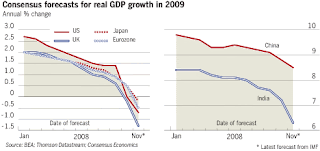Berkshire, next default target?

At those levels, the swaps are typical of companies rated Baa3 by Moody's Investors Service, one level above junk. The price may have risen on concern that the billionaire's firm could lose a $37 billion bet on world stock market values more than a decade from now. Not only Berkshire would have to exhaust its $33.4 billion cash hoard, but also Buffett's decades-long record as the world's most successful investor would have to come to a cataclysmic end. President-elect Barack Obama, Goldman and GE all turned to Warren Buffett for advise or capital.
The increase may be tied to a series of bets that Buffett has taken on four stock indexes across the globe. Buffett sold contracts to undisclosed buyers for $4.85 billion that protect the buyers against declines in those markets. Under the agreements, Berkshire will pay as much as $37 billion if, on specific dates beginning in 2019, the market indexes are below the point where they were when he made the agreements. By Sept. 30, Omaha, Nebraska-based Berkshire had written down the contracts by $6.73 billion as the S&P declined for a fourth straight quarter.
People should realize that he was able to obtain that capital gained from sales of CDS to invest on such attractive terms for years before the chance comes that he'll have to pay. However, before the market gets stabilization, the increasing cost of Berkshire credit protection in the swaps market isn't crazy in light of the way the markets performed.
Labels: crisis, warren buffett






